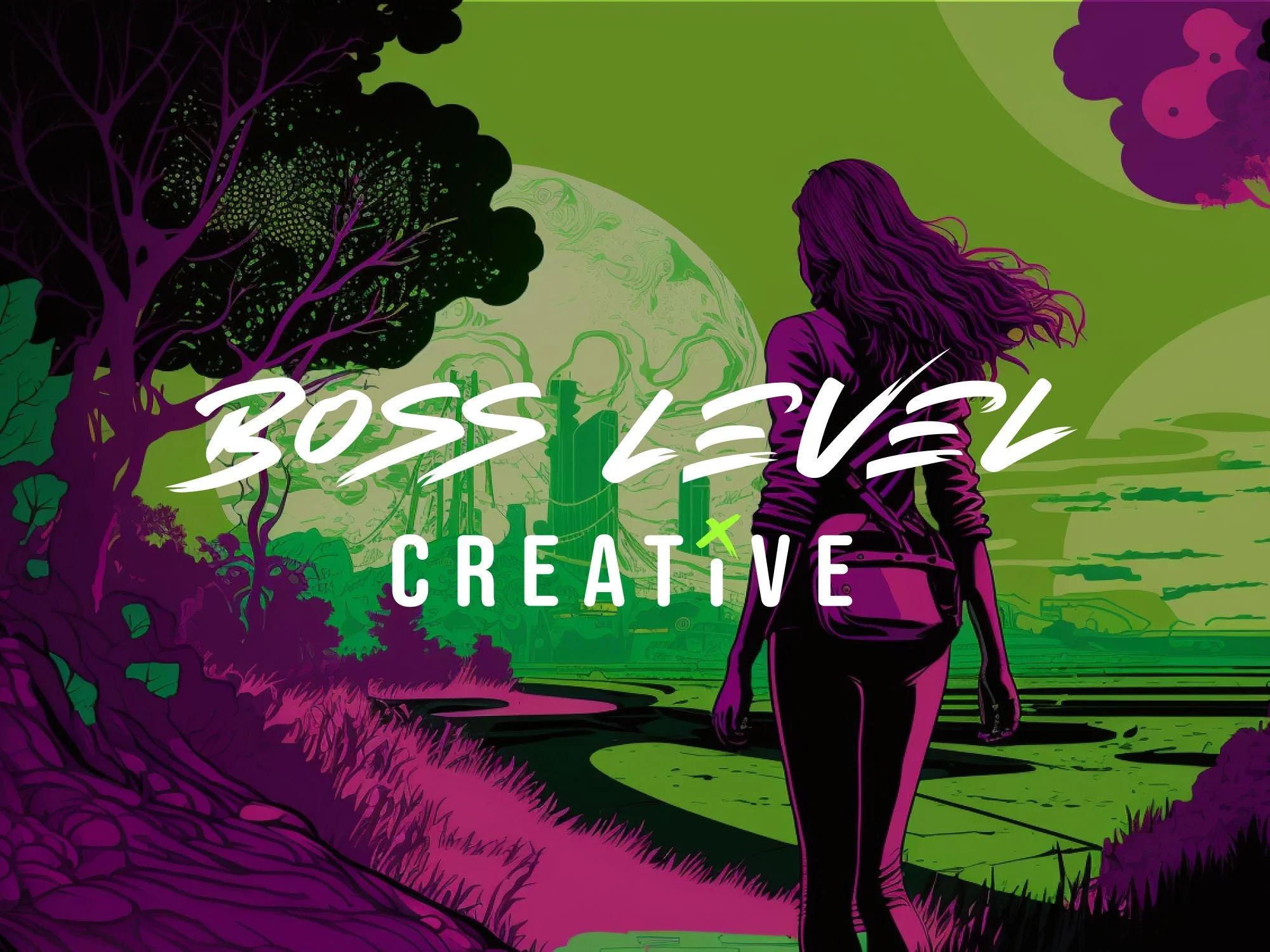How to Choose a Brand Designer (vs Hiring an Agency or Staying DIY)
Bold, graphic-heavy visuals for gaming company, showcasing a unique gaming aesthetic – illustrating the creative flexibility and originality a small design studio can bring versus a traditional agency.
You know you need help with your brand. But agency quotes make your eyes water, and the thought of DIYing another pitch deck in Canva at midnight? Let’s not. You need brilliance, not burnout.
Instead, let’s walk through your options – no judgement, just clarity. Because we love a founder with good instincts and big dreams.
Option 1: Stay DIY
There’s no shame in scrappiness. Maybe you’ve made it this far with a logo from a mate, a Notion colour palette, and some fairly heroic use of ChatGPT. That’s resourcefulness. We applaud it.
Pros
Zero cost
Total control
Feels immediate
Cons
Huge time drain
No outside perspective
Risk of looking inconsistent, amateur, or forgettable
DIY branding can get you started. But at a certain point, your business outgrows it – like a founder still wearing their uni hoodie to a VC pitch. Love the spirit, but let’s polish it up.
Option 2: Hire a Traditional Agency
The old-school route. You get a full team: strategy, design, copy, account managers. There are slides. Lots of them.
Pros
Polished process
Impressive outputs
Good for complex, multi-stakeholder brands
Cons
High cost (often starting at £50k+)
Slower timelines
Less direct access to the people doing the work
Agencies can be great if you’ve got scale, budget, and layers of leadership. But for small, fast-moving teams? It can feel like trying to get dressed with oven mitts on.
Option 3: Work With a Small Studio or Strategic Freelancer
Here’s where we believe the magic happens. You still get strategy, creative direction, and design – but in a way that’s hands-on, fast-moving, and founder-friendly.
Pros
Direct contact with the people doing the work
Blend of strategy and execution
Nimble and collaborative
More manageable cost – budget-friendly without sacrificing quality
Costs tailored to your budget – without cutting corners
Cons
Less suited to large-scale rollouts
Can be dependent on finding the right fit
Doesn’t have the ‘big agency’ name to lean on for trust
For teams of <15, this route often offers the best balance of clarity, creativity and speed. It’s the power trio of “knows your name,” “answers your emails,” and “gets sh*t done.”
What to Look for in a Brand Partner
Not all designers (or studios) are created equal. Here’s what really matters:
Strategic thinking, not just pretty logos – You want someone who can ask the right questions, not just pick nice fonts
Founder-first mindset – They should get what it’s like to build something from scratch, from messy Google Docs to ‘we need this by Friday’ moments
Flexible process – One that fits your stage, your goals, and your budget
Bonus points if they’ve worked with startups, can turn things around quickly, and speak human (not just “design”).
How We Work at Kireli
We’re a small studio with big-brand and big-agency experience – and a soft spot for ambitious, messy, magic-in-the-making businesses.
That means you get:
Strategic workshops that cut through the fluff
Messaging that sounds like you, not a tech thesaurus
Visual identities that scale – from investor decks to first hires
Quick turnarounds (think weeks, not months)
Costs tailored to your budget – without cutting corners
Direct access to us (hi, we’re Em and Olly.)
We keep things focused, collaborative and built around what founders actually need – not bloated processes or unreadable brand books. We’re here to help you feel clear, confident, and bloody brilliant about what you’re building.
Feel you need brand support and are curious if we could be the right for you?
Let’s have a chat! We’ll help you figure out what exact support you need – and what you don’t.
If that’s us, great! But if you require something, or someone, else we’ll always let you know. And point you in the right direction.

